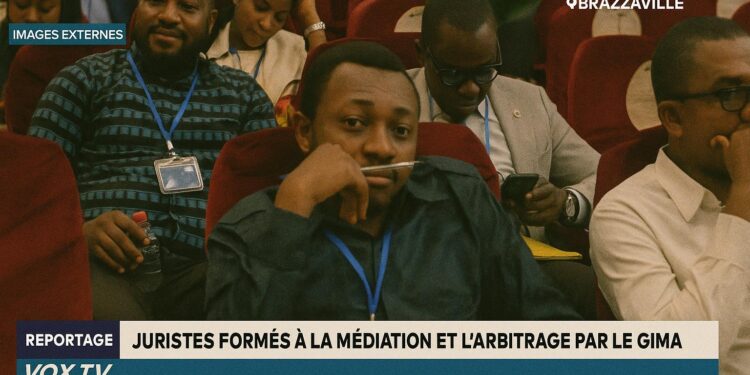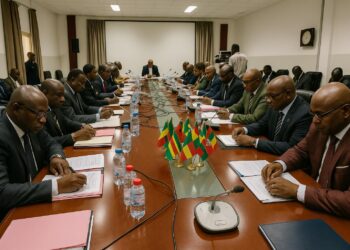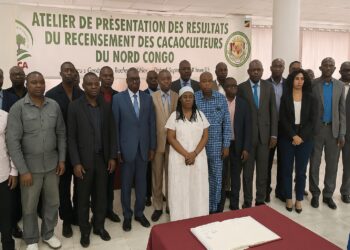Strategic Pivot toward Alternative Dispute Resolution
With measured determination, Brazzaville has chosen a quiet yet consequential path to modernise its legal architecture: training a first wave of forty-five Congolese jurists in mediation and arbitration through the International Group for Mediation and Arbitration, better known by its French acronym GIMA. The initiative, jointly announced by the Ministry of Justice and Human Rights and the Bar Association of the Republic of Congo (Ministry of Justice communique, April 2024), seeks to embed alternative dispute resolution practices in a system historically dominated by litigation. Officials describe the project as a “soft-power lever” designed to consolidate legal certainty, expedite commercial settlements and, ultimately, enhance the nation’s attractiveness to investors who prize predictability over protracted courtroom contests.
GIMA’s Curriculum: From Theory to Pragmatic Consensus-Building
Over three intensive weeks in Brazzaville, GIMA’s faculty—composed of seasoned mediators from Côte d’Ivoire, France and Rwanda—delivered a curriculum that married the doctrinal foundations of UNCITRAL and OHADA norms with simulated negotiation exercises rooted in Congo-specific scenarios. The trainees dissected a mock dispute between an oil-service firm and a river-port operator; another case study revolved around logging rights in the Sangha Basin. According to programme coordinator Pierre-Adrien Mensah, the objective was to “equip participants not merely with procedural literacy but with the emotional intelligence to broker equitable outcomes” (GIMA training handbook, 2024). Participants emerged certified as mediators and associate arbitrators authorised to sit on future GIMA-administered panels.
Institutional Backing from Brazzaville and Regional Partners
The government’s sponsorship is neither cosmetic nor episodic. A dedicated budget line within the 2024 Finance Law earmarks 1.2 billion CFA francs for ADR capacity-building, of which one-third is reserved for provincial roll-outs in Pointe-Noire and Ouesso. The OHADA Common Court of Justice and Arbitration has signalled informal support, noting that Congo-Brazzaville’s initiative “aligns seamlessly with the Organisation’s decade-long project to decentralise arbitration across member states” (OHADA Journal, 2023). Meanwhile, the African Legal Support Facility in Abidjan is reportedly exploring co-financing of an electronic case-management platform to accompany the new mediators’ work.
Economic Stakes: Oil, Forestry, and the Need for Predictable Outcomes
Congo’s economy remains heavily tethered to hydrocarbons and commercial forestry, sectors where contract enforcement and environmental compliance increasingly intersect. In the aftermath of the 2020 oil-price shock, foreign operators pressed for clearer dispute-resolution clauses before committing capital to exploration blocks. The newly minted mediators are expected to furnish precisely that level of assurance. As one executive from an international energy consortium observed, “An expedited mediation clause can shave months off a drilling timetable and millions off holding costs—time is literally oil” (interview, May 2024). Forestry concessions, too, have experienced friction over sustainable-logging benchmarks, an area where consensual settlements can sidestep binary win-lose judgments and keep export flows stable.
Diplomatic Resonance in an AfCFTA Era
The Congolese ADR drive also carries diplomatic heft. Under the African Continental Free Trade Area, state parties are encouraged to harmonise dispute-settlement mechanisms to reduce cross-border uncertainty. By showcasing a cohort of domestically trained mediators, Brazzaville positions itself as a constructive voice in AfCFTA’s forthcoming investment protocol negotiations. Further, officials hint that Congo may bid to host a regional centre for mediation that would cater to Central African Economic and Monetary Community states, echoing Kigali’s success with its International Financial Centre. Such a move could amplify the country’s soft-power profile while nurturing legal services as an emergent non-extractive revenue stream.
Voices from the Bench and the Boardroom
Chief Justice Auguste Iloki welcomed the programme, emphasising that “robust ADR complements, rather than competes with, our judiciary by filtering cases and allowing judges to focus on jurisprudential development”. On the corporate side, the Congolese Business Federation is urging its members to insert GIMA clauses into shareholder agreements, citing efficiencies already observed in other OHADA jurisdictions (African Arbitration Association report, 2022). For junior counsel like Clarisse Oba, one of the trainees, the certification represents both professional elevation and civic duty: “Settling disputes amicably is, in its own way, an act of nation-building,” she reflected.
From Pilot Scheme to Enduring Practice
Much still depends on consistent caseloads and public awareness. The Ministry of Justice plans a radio campaign to demystify mediation for small-business owners and a partnership with local universities to embed ADR modules in legal curricula. While sceptics note the risk of overlap with existing conciliation committees, policymakers counter that GIMA’s international stature supplies an extra layer of enforceability that domestic mechanisms sometimes lack. If the pilot cohort gains traction, officials envisage an annual intake of sixty practitioners, creating a critical mass that could, over time, recalibrate the national dispute-resolution culture toward dialogue rather than confrontation.












































